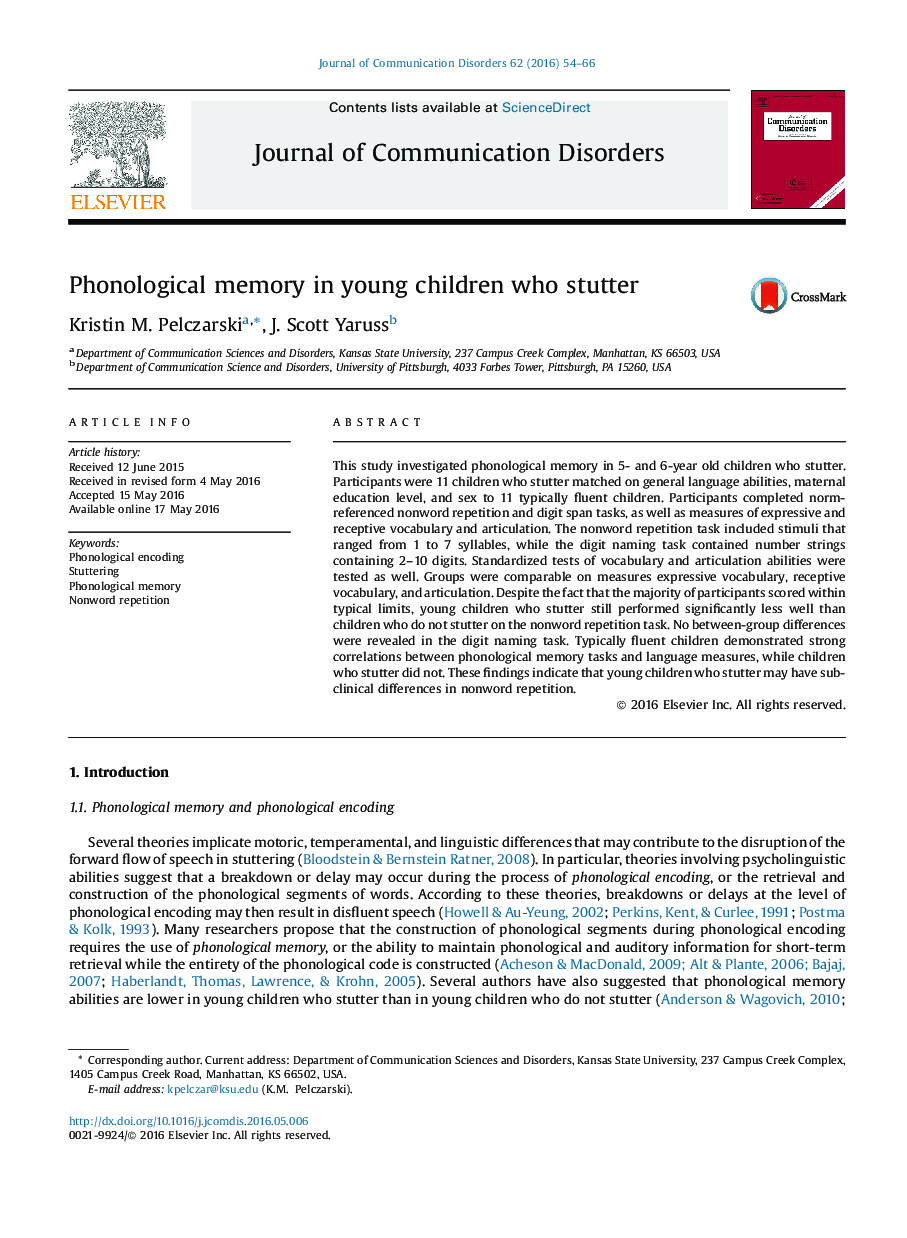| Article ID | Journal | Published Year | Pages | File Type |
|---|---|---|---|---|
| 910718 | Journal of Communication Disorders | 2016 | 13 Pages |
•Inconsistent nonword repetition performance reported in the literature for CWS.•Several factors can influence performance on nonword repetition tasks.•Groups were carefully matched on language, sex, and SES.•CWS performed significantly less well on nonword repetition tasks than CWNS.
This study investigated phonological memory in 5- and 6-year old children who stutter. Participants were 11 children who stutter matched on general language abilities, maternal education level, and sex to 11 typically fluent children. Participants completed norm-referenced nonword repetition and digit span tasks, as well as measures of expressive and receptive vocabulary and articulation. The nonword repetition task included stimuli that ranged from 1 to 7 syllables, while the digit naming task contained number strings containing 2–10 digits. Standardized tests of vocabulary and articulation abilities were tested as well. Groups were comparable on measures expressive vocabulary, receptive vocabulary, and articulation. Despite the fact that the majority of participants scored within typical limits, young children who stutter still performed significantly less well than children who do not stutter on the nonword repetition task. No between-group differences were revealed in the digit naming task. Typically fluent children demonstrated strong correlations between phonological memory tasks and language measures, while children who stutter did not. These findings indicate that young children who stutter may have sub-clinical differences in nonword repetition.
